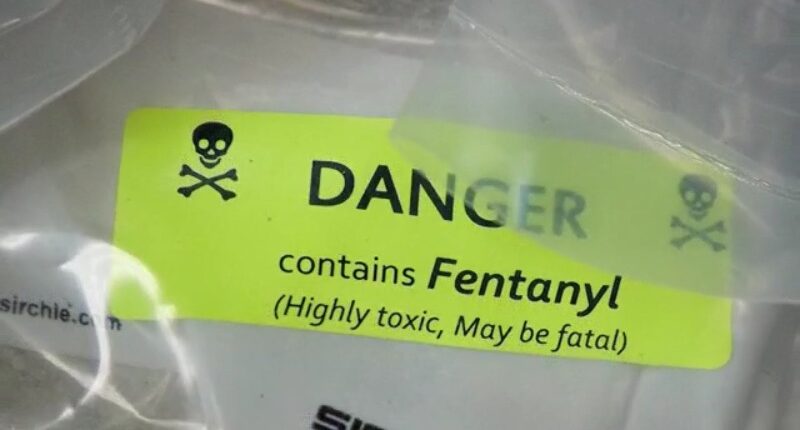Share this @internewscast.com

AUGUSTA, Ga. () – Augusta District Attorney Jared Williams is sharing his thoughts on a law enacted by President Trump aimed at combatting Fentanyl.
President Trump signed legislation known as the HALT Fentanyl Act into law just within the last couple of weeks.
We sat down with the District Attorney today, and he had a lot to say about the bill that he says is nothing new.
In 2022, more than 109,000 people died of drug overdoses, and 75,000 of those were largely due to fentanyl-related substances.
For Williams, he’s seen that impact firsthand.
“I had the sorrowful experience of losing a friend and someone I grew up with to drug abuse and addiction. It’s heart-wrenching, because no parent should have to bury their child,” stated Williams.
This situation underlies the HALT (Halt All Lethal Trafficking) Fentanyl Act, which establishes fentanyl-related substances as a permanent Schedule-1 drug under the Controlled Substances Act.
“When we mention ‘fentanyl-related substances,’ we are primarily referring to illicitly produced Fentanyl. Fentanyl synthesized without medical oversight. This is the focus of the bill,” Williams explained.
But the DA says the legislation is nothing new.
President Trump advocated for similar legislation during his first term back in 2018, which, according to Williams, unfortunately led to an increase in Fentanyl-related deaths instead of a decrease.
“In 2018, there were approximately 70,000 deaths annually due to Fentanyl overdose. That figure increased from 2018 to 2023, reaching 110,000 from Fentanyl overdoses. Legislation alone is not enough to address the core of our issue,” he added.
Williams says another potential setback with the HALT Act is the limitations for further research on relevant substances.
“Because these drugs are now permanently in Schedule-1, it means we don’t have any meaningful opportunities for researchers to study the drugs more. It’s going to restrict the ability to test and try different methods of finding other antidotes. I think that hurts us, because it doesn’t allow us to find the next naloxone,” said Williams.
The law could lead to longer prison sentences for traffickers behind bars.
But the DA says the key to the issue is helping those struggling with drug addiction—giving them a new purpose instead of prison stripes.
“If we can help the end-user get linked with the resources they need—so they can learn about addiction, learn how to deal with underlying issues and root causes, helping them to start reducing the harm to themselves—that’s where we save lives. That’s where we make an impact,” Williams said.
He also says it comes down to a response from every stakeholder.
“It cannot just be a law enforcement problem, it cannot just be a courts problem—it’s got to be a community response to this health crisis.”
Williams says more funding for Fentanyl education and drug treatment services would make a big difference.
His advice to families is to start having conversations at home sooner, before it’s too late.
To learn more about the HALT Fentanyl Act, click here.











